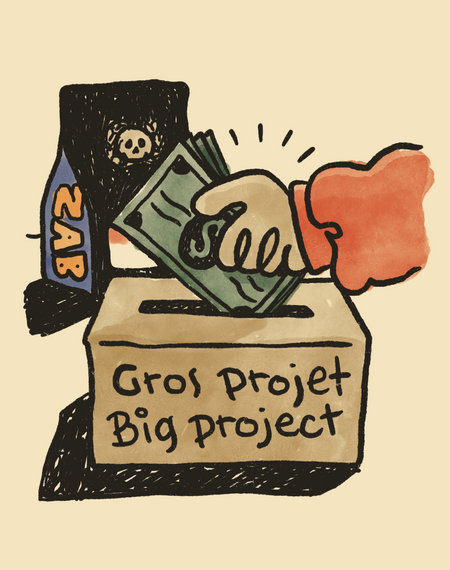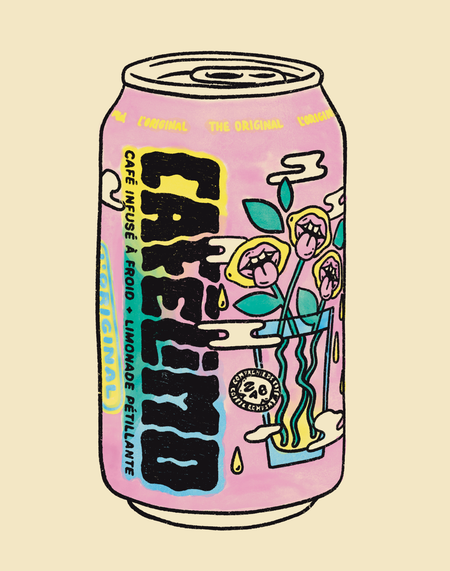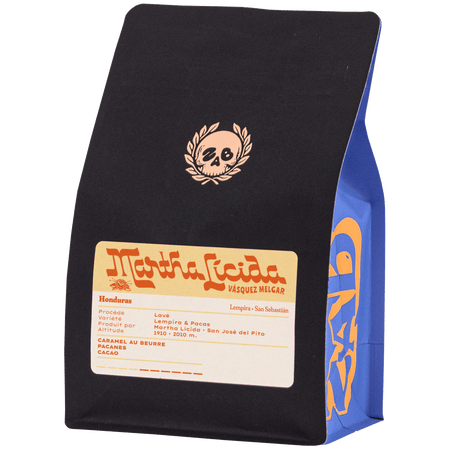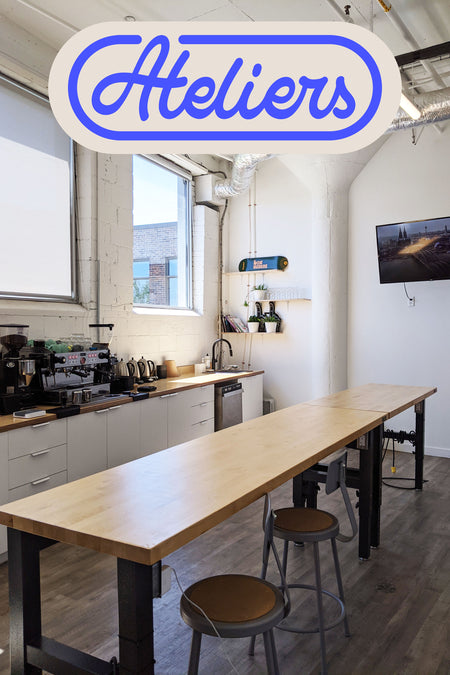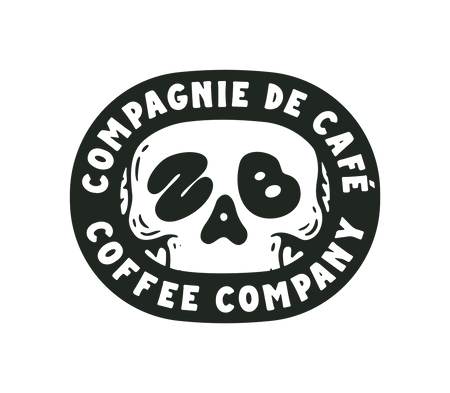
Mataquescuintla, Jalapa, Guatemala
Relationship : 4 years
The Lemus family has upheld the coffee-growing tradition for 66 years, spanning three generations. Baudelio Lemus and his children, Juan Raul, Ramiro de Jesus, and Sandy Esmeralda, invest perseverance and dedication in cultivating their lands, fully aware of the meticulous work and care needed for a quality harvest. They strive to maintain their wooded farm by planting various trees to preserve environmental balance and combat pollution.
Engaged in this endeavor, the family strongly opposes the mining exploitation rampant in the country. Guatemala, rich in natural resources, is an easy target for multinational corporations. Faced with this alarming situation, they are part of the peaceful resistance led by the Café Colis Resistencia group.
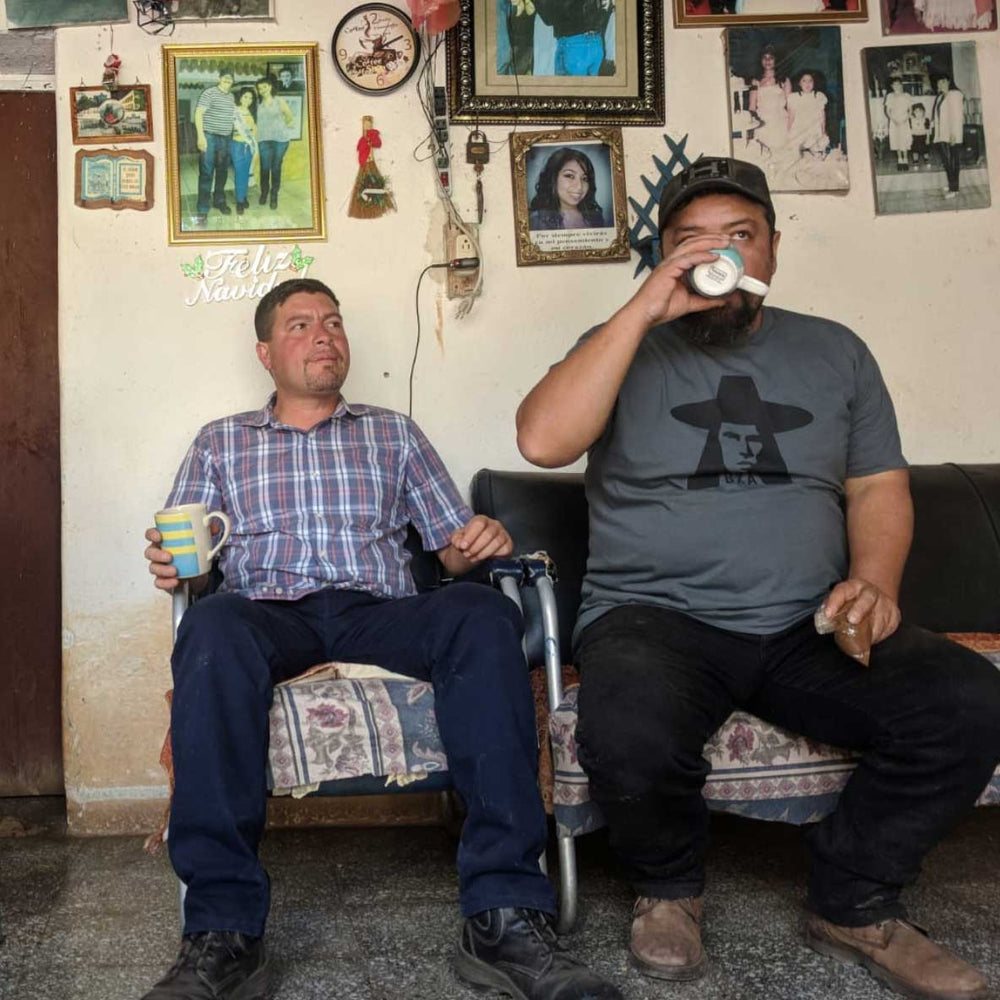
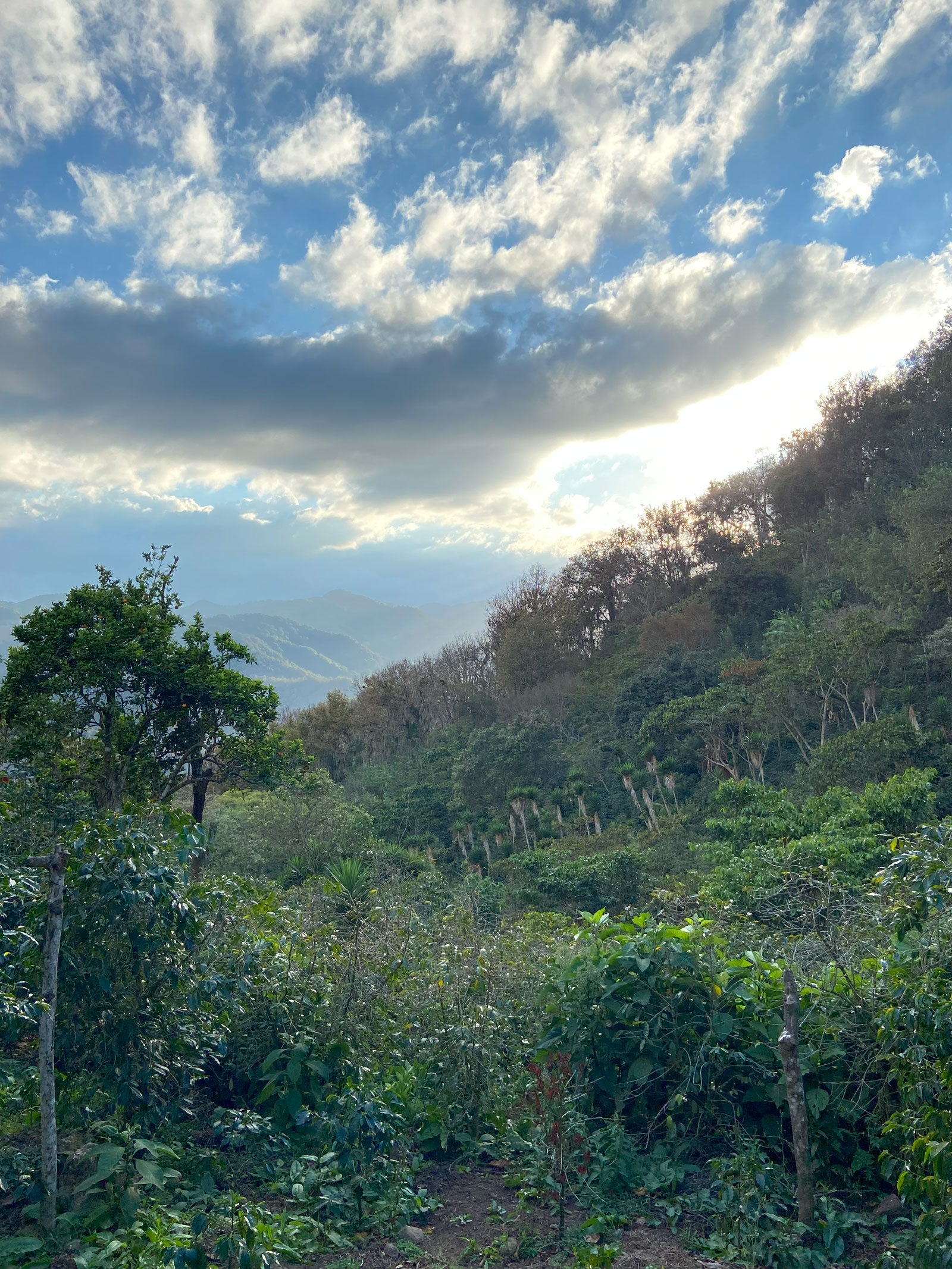
Regional Context
In Mataquescuintla and its surroundings, nearly 90% of the population considers themselves coffee producers; however, almost none of these producers have access to a market beyond the local market. Furthermore, they receive little or no support from their national government regarding coffee production, analysis, or quality, while facing low prices and limited options.
Café Colis Resistencia
Café Colis Resistencia is the name adopted by Alex Reynoso to refer to the coffee-producing members of the Xinca indigenous community around Mataquescuintla. This designation draws inspiration from the legendary history of resistance among the Xinca people, dating back to the time of the Spanish conquistadors. The Xinca, after refusing to submit to Spanish colonization,
were ultimately persuaded to lay down their arms by Spanish generals pretending only to want to pass through their territory. Once passage was granted, the Spaniards betrayed the trust of the Xinca by banning the use of their language and cultural traditions in retaliation for their resistance. This event marked the beginning of a long period of cultural decline that persisted until the 21st century, with the Guatemalan government often denying the very existence of the
Xinca or their status as indigenous peoples.
Starting in 2003, the Xinca seriously embarked on a struggle for their recognition, seeking through legal means to revive their nearly forgotten cultural traditions and language. However, with the advancement of a mining project named Escobal, erected in 2008, this battle was relegated to the background, and their focus turned to resistance against this extractive project approved without their consent.

Escobal
The mine, located about 5 km from Mataquescuintla, is considered to pose significant danger to all surrounding communities. Despite massive opposition expressed in multiple local referendums, with rejection rates ranging from 93 to 100%, Tahoe Resources nevertheless undertook the construction of the mine. From 2011 to 2013, hundreds of complaints were filed against the Escobal license. Despite these concerns, Escobal continued its operations, leading to environmental pollution, drying up lakes, and causing house collapses due to underground mining.
The Xinca community persisted in their resistance, resulting in a complete blockade of the mine entrance in 2017. In July of the same year, this action finally prompted the Constitutional Court to rule against Tahoe Resources and suspend their license pending an appropriate consultation process. This decision was a major victory, as it not only recognized the importance of indigenous rights in the consultation process for mining projects but also specifically acknowledged the rights of the Xinca, which had previously been denied. Since then, the Xinca populations have been more accurately represented in census data, numbering 268,223 people in the 2017 census, compared to 16,214 in 2002!
The mine ownership has since been transferred to the Canadian company Pan-American Silver, which has committed to respecting the required consultation process. Escobal has remained closed since then, while consultations continue. Despite the hope that the consultation will result in favor of Café Colis Resistencia, persistent uncertainty has led to a decrease in morale.
Semilla
Over the years of collaboration with Café Colis Resistencia, Semilla, the importing company of these coffees, has done remarkable work to help them not only establish a stable market but also deepen their understanding of the product and the processes required to harvest and process high-quality coffee. Semilla provides considerable support to the group, ranging from the analysis of coffee and soil samples to mentoring, equipment purchase, and of course, facilitating access to the international market.
This project is arguably one of the most valuable for Semilla in terms of impact, advocacy, and support. Every roaster or consumer who buys, drinks, and enjoys this coffee, especially in Canada, contributes significantly to a community that just a few years ago felt completely abandoned.


